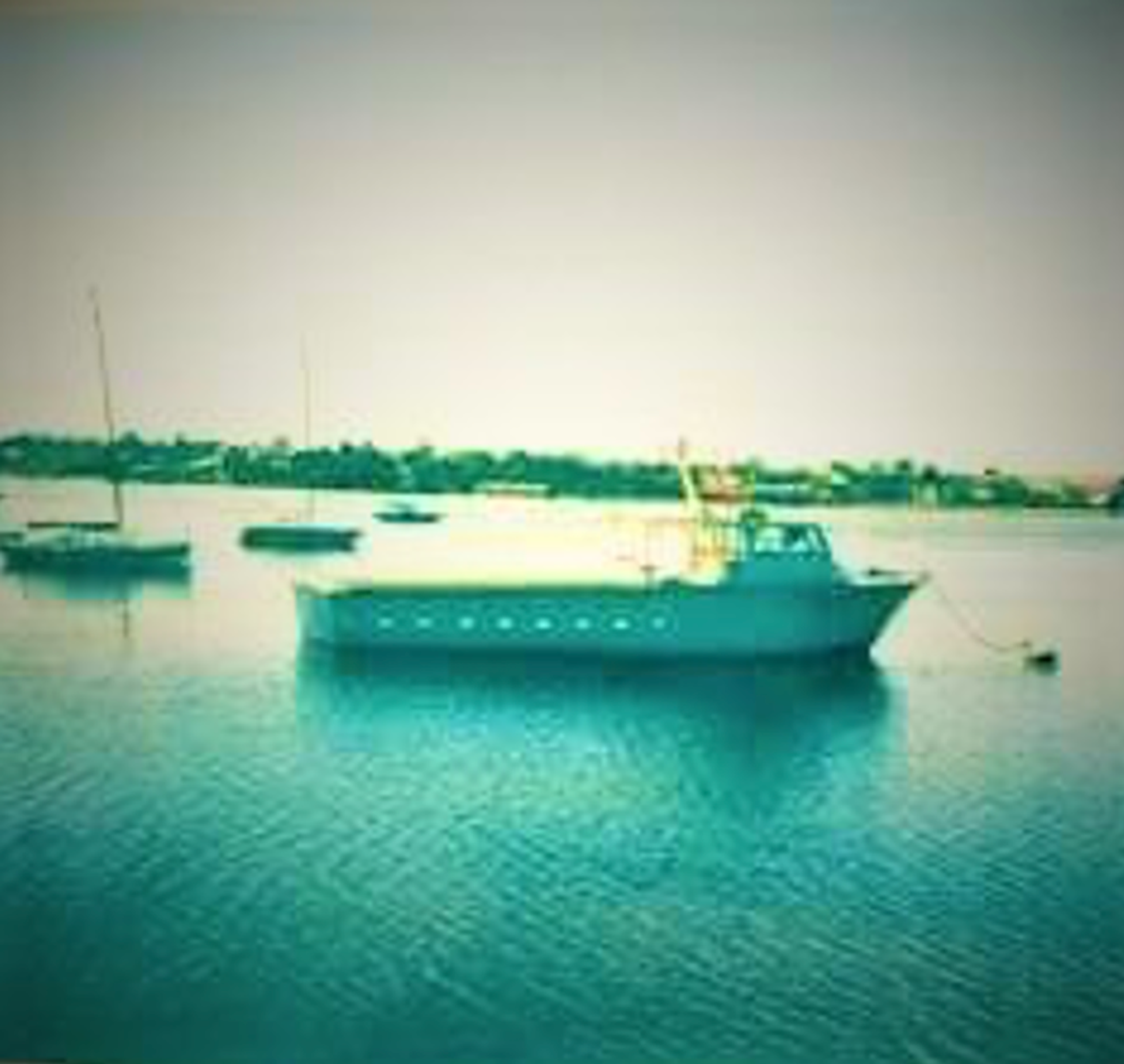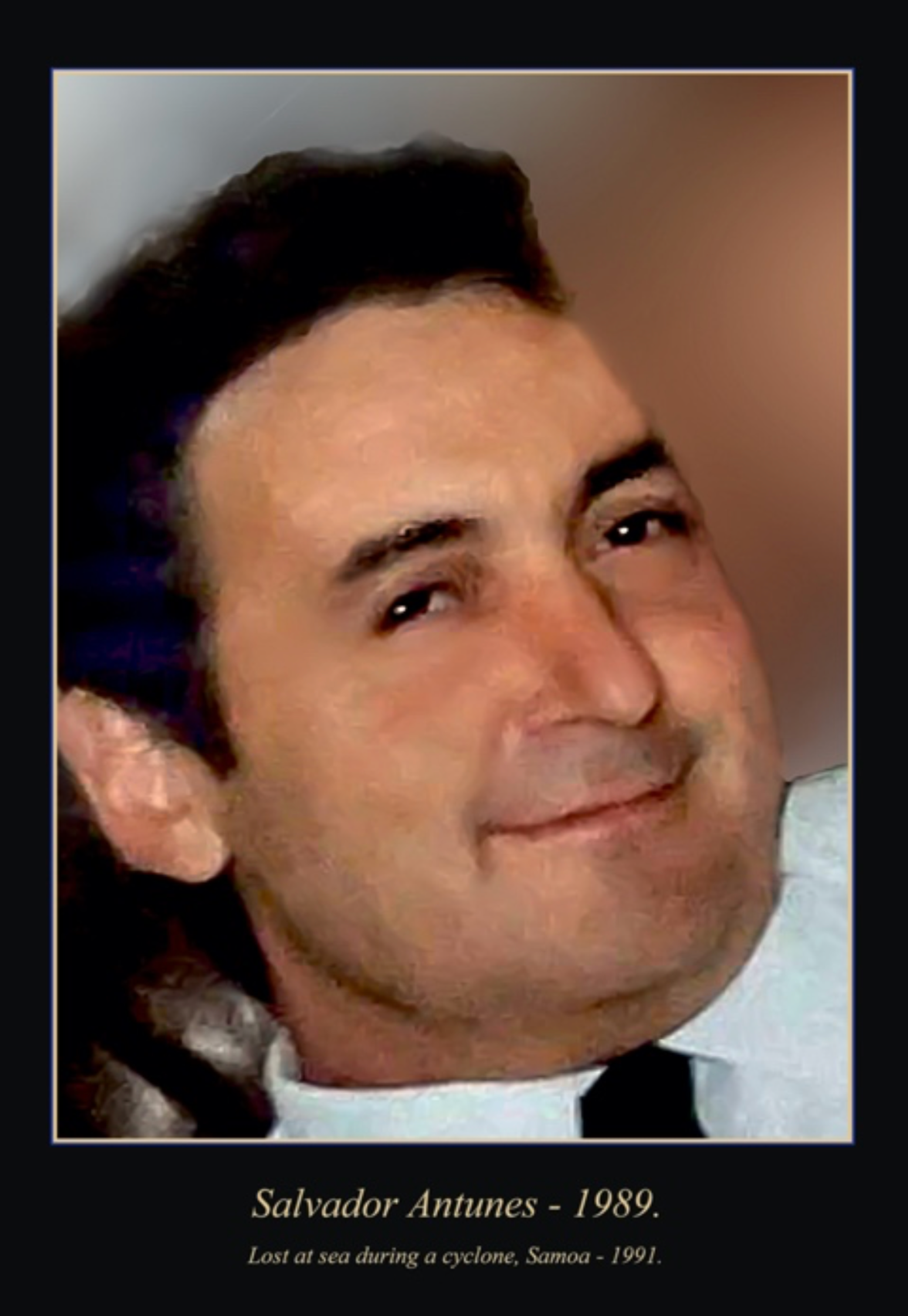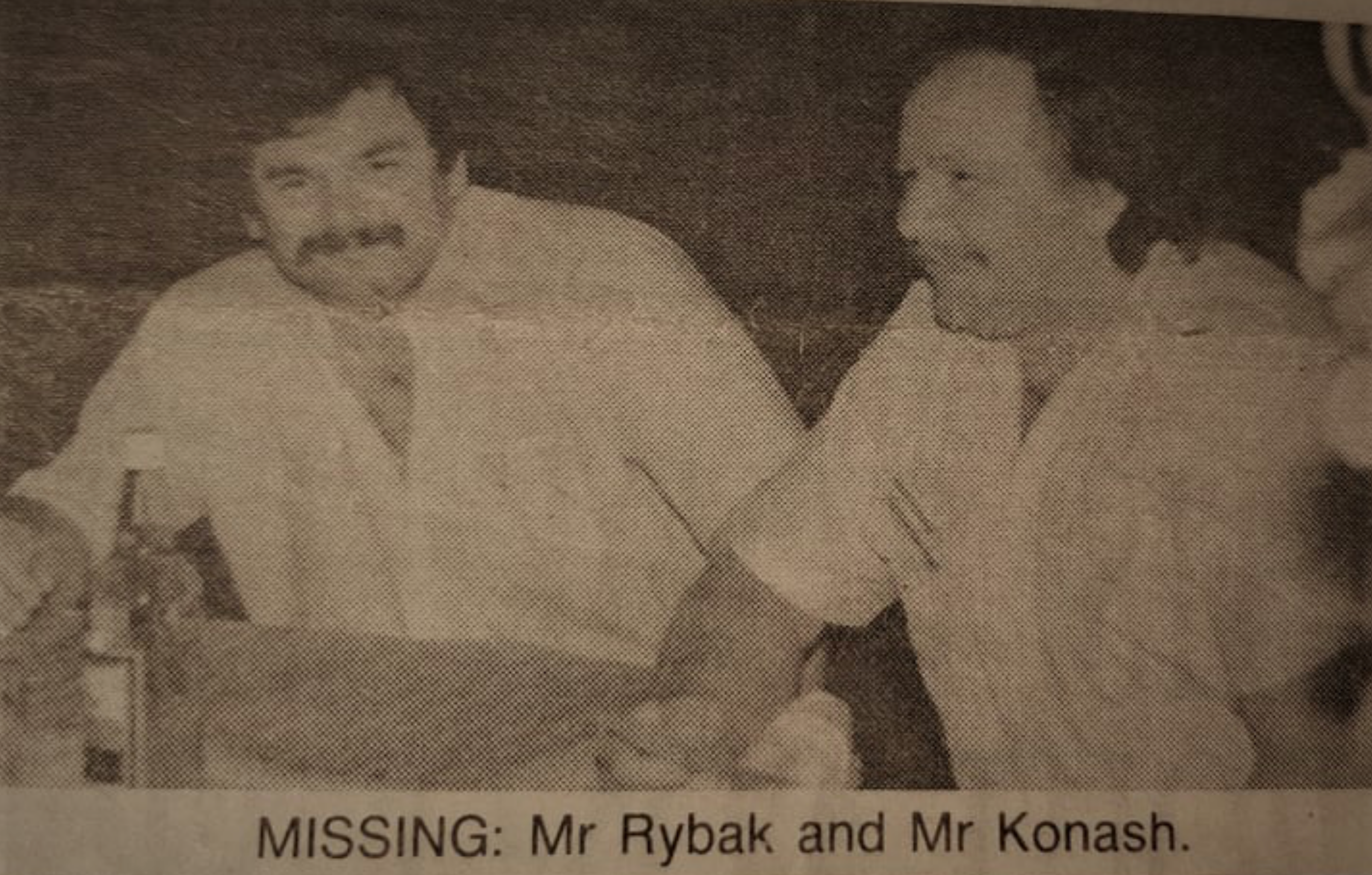Arga-J
Vessel Name: Arga-J
Salvador Antunes
Marek Konash
Marian Rybak
Lost in Cyclone Val off Western Samoa; Bodies never recovered
9 December 1991

Arga-J

Salvador Antunes

Marian Rybak and Marek Konash
The tragic story of the Arga-J highlights the diversity of the cultures and unquenchable dreams that drive fishers to the sea from all corners of the Earth.
Salvador Jose Antunes was born in Tangier, Morocco in 1944 from a Spanish’ mother and a Portuguese father. When Morocco became independent in 1956, foreigners living in Tangier, a diplomatic enclave at the time, were given the choice to migrate to a European country. His father chose to go to France. Salvador was 13 years old at the time.
When he was 24, Salvador and his wife Ginette decided to migrate to Sydney with their newborn daughter named Isabelle. Australia was the new world at the time, full of promises. A few years later, after his 2 other children (Hélène and Wiliiam) were born, Salvador was missing his parents greatly and returned to France with his family. But he quickly realized he made a mistake and applied over and over to get the visa allowing the family to migrate again, this time to Western Australia in 1983. Shortly after settling back in Australia, he became friends with Marian Rybak and Marek Konash originally from Poland.
Born in Krakow, Poland, 1952, Marian Rybak and his young family (which included his wife Krystyna and daughters Aneta and Kasia), fled from the uncertainties of their homeland, Poland, in 1981, during a tumultuous era, just before the onset of Martial Law and a state of war. The family remained in refugee status for over a year in Austria before being granted a visa to travel, and settle in Perth, Australia. Their first home was a rental on Tuckfield Street in Fremantle.
Marek Konash was born in Gdansk, Poland in 1953. Like Marian, Marek, his wife Halina and their children Olimpia, Diana and Remy also fled from Poland in 1981. The family remained in refugee status for over a year in Germany, before being granted a visa to travel, and settle in Australia. Sydney was their first place of residence, before they made a permanent move to Perth.
The three men came from different horizons and used different routes, but all migrated with the hope and dream of a better life.
Marian, Marek and Salvador’s friendship was further cemented by a great love for the sea and fishing that the men shared. In 1990, their dreams started to take shape as reality upon seeing a newspaper advertisement calling for fishermen to work for SAMPAC International out of Western Samoa in the South Pacific Ocean. Nothing could stop the 3 men who had already travelled from Europe to Australia: each of them sold their house and by 1991, the men were joint owners of a forty-foot (13.5 metre) fishing vessel named the Arga-J.
They departed from Fremantle on a cold spring morning in October 1991. They made it to Western Samoa the following month, started to fish and were proud that their plan was working until early December, when a small weather system developed into a severe Cyclone.
Unfortunately, weather and timing were not in their favour and the three men were at sea when Cyclone Val began building as the most severe weather system to hit the region in 100 years. Wind speeds reached 240 km/hr with 15-metres waves. Cyclone Val hit the Samoan islands in December 1991 as a Category Four system and left an extensive trail of damage. The battered Arga-J was later found with its hull stuck on a reef near the island of Nu’usafe’e, just south of Western Samoa. Australian defence officials assisted in the search. Friends and relatives took some hope from the fact than an aluminium dinghy was missing from the Arga-J debris. Marian, Marek and Salvador were gone and never found. The three men left behind 8 children.
Salvador was just 47 years old at the time. He was going to marry again and to introduce his fiancé to his children that Christmas.
But family ties are strong across the Antunes clan, and the family sold land in Spain to search the many Pacific Islands in the belief the men had survived and were shipwrecked, lost and confused somewhere in the region.
After 12 months of searching the money ran out, the family hopes dissolved, and the reality of the loss became all consuming.
Salvador’s children, Isabelle, Hélène and William aged 24, 22 and 20 at the time were left with no home, no father and no money. They made it on their own.
30 years later, the 3 men’s eldest daughters decided to put a plaque in memory of their fathers to find some closure. Isabelle looked for her Dad’s fiancé to invite her to the ceremony and discovered she was residing in a residential aged care home. She visited her, showed her Salvador’s photo and reminded her how much he loved her. The old lady gently touched Salvador’s face on the screen of the phone.
When strolling the boardwalk at Fremantle’s Fishing Boat Harbour, keen eyes will note a small plaque adjacent to Cicerello’s featuring a picture of the Arga-J and a brief story of her loss.
